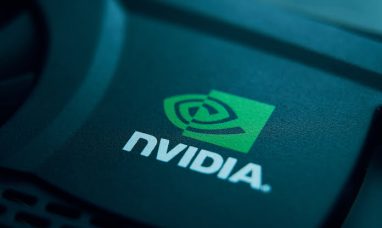Microsoft’s AI strategy is redefining business productivity, innovation, and operations across industries. Under CEO Satya Nadella’s leadership, Microsoft (NASDAQ:MSFT) has emerged as a dominant force in the AI revolution, fulfilling his 2023 prediction that “AI will reshape every software category and every business.”
Microsoft AI Strategy Powered by Copilot
A central component of the Microsoft AI strategy is Copilot, the AI assistant embedded in Microsoft 365 apps like Word, Excel, and Outlook. Rolled out globally in late 2023, Copilot has rapidly penetrated enterprise environments. By the end of 2024, nearly 70% of Fortune 500 companies had integrated the tool into daily workflows.
Companies report major productivity gains. Ernst & Young (EY), for instance, uses Copilot to automate tax reconciliation and enhance financial analysis accuracy. According to an IDC report sponsored by Microsoft, businesses using generative AI tools such as Copilot average a $3.70 return for every $1 spent. Top-performing companies even reported returns of up to 10.3x.
Despite early success, full adoption lags. A 2024 Gartner survey found that while 80% of organizations were testing Copilot, only 16% had deployed it company-wide due to concerns about security, return on investment, and deployment complexity. These hurdles mark the next frontier in Microsoft’s AI integration plan.
Microsoft AI Expands Across Industries
Beyond office tools, the Microsoft AI strategy is reshaping other sectors. In finance, Microsoft Cloud for Financial Services is enabling firms to infuse real-time data and AI-powered analytics into their operations. This leads to improved compliance, customer service, and decision-making.
In the telecom sector, Australia’s Telstra implemented Copilot to streamline operations. The company reported time savings of up to 20 hours per employee each month. While the time savings are clear, internal debates now focus on how best to utilize the extra time—highlighting the cultural shift AI adoption brings.
As Copilot and similar tools become indispensable, Microsoft’s pricing has drawn attention. The $30 per user/month fee for Copilot—a 60% premium over standard Microsoft 365 plans—has sparked discussion among CIOs about value and affordability. Many leaders are now weighing short-term costs against long-term efficiency.
AI Agents: The Next Leap in Microsoft AI Strategy
Looking ahead, Microsoft is banking on AI agents to continue leading the innovation curve. Introduced via Copilot Studio at Microsoft Ignite 2024, these agents are designed to autonomously manage complex workflows.
Unlike traditional chatbots that rely on step-by-step prompts, AI agents can execute entire workflows with a single command. They represent a shift toward autonomous task management. This opens doors to full project automation—from content creation to software development.
The rise of “vibe coding” exemplifies this trend. Startups like Rork, Lovable, and Bolt allow users to describe a vision for a game, app, or website, and receive a complete product without writing code. These tools rely on AI agents to build, debug, and deploy fully functional software.
This innovation aligns with Microsoft’s vision: building AI that doesn’t just assist—but acts. And with each advancement, the company tightens its grip on the future of digital productivity.
Conclusion: Microsoft AI Strategy Sets the Pace
The Microsoft AI strategy is more than a corporate initiative—it’s a blueprint for how businesses will operate in the AI age. Whether through enhanced office productivity, autonomous agents, or sector-specific platforms, Microsoft (NASDAQ:MSFT) is creating tools that redefine work.
With rapid developments in AI-driven innovation, Satya Nadella’s once-bold prediction now feels inevitable. As more companies adopt and adapt, Microsoft’s influence over the evolving AI landscape will only deepen—cementing its role at the heart of the global business transformation.
Microsoft’s ongoing investment in AI ensures it remains a leader in productivity, automation, and innovation—shaping the future of work worldwide.
Featured Image – Depositphotos









